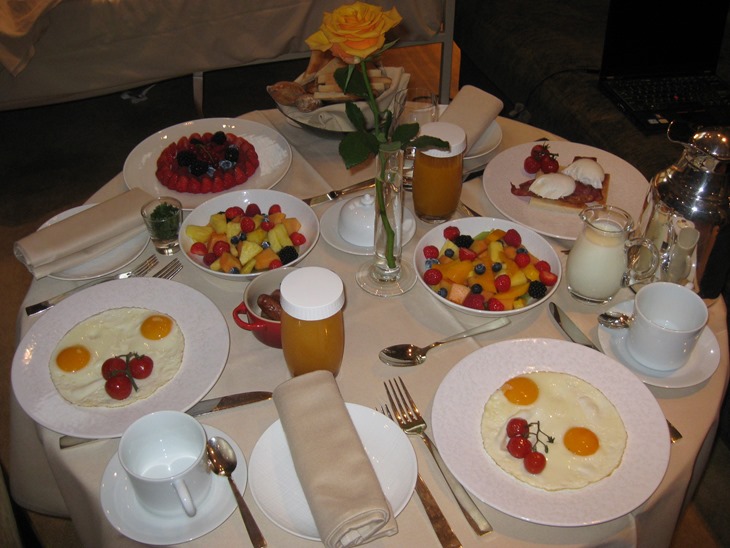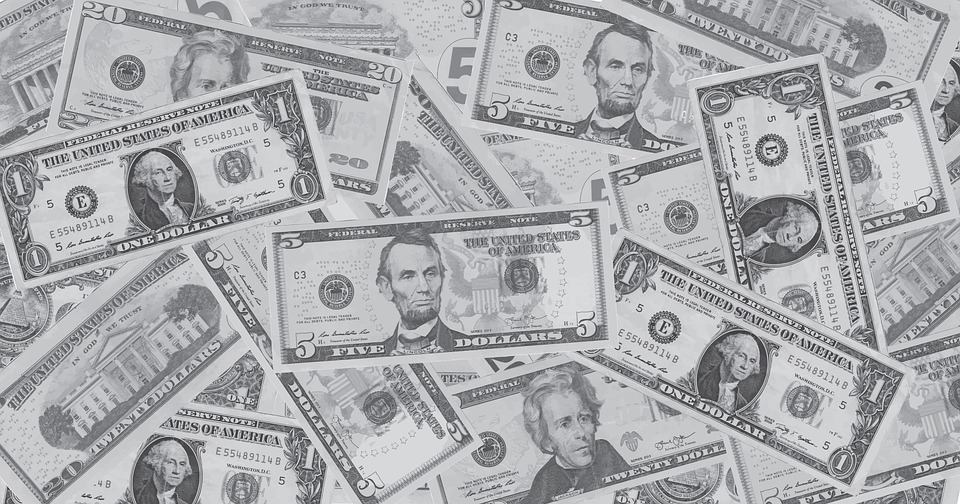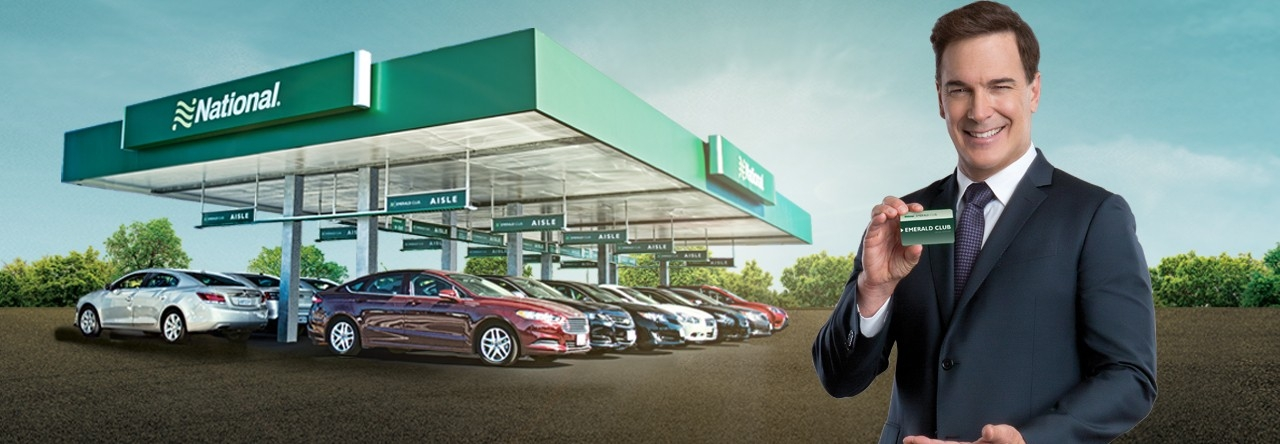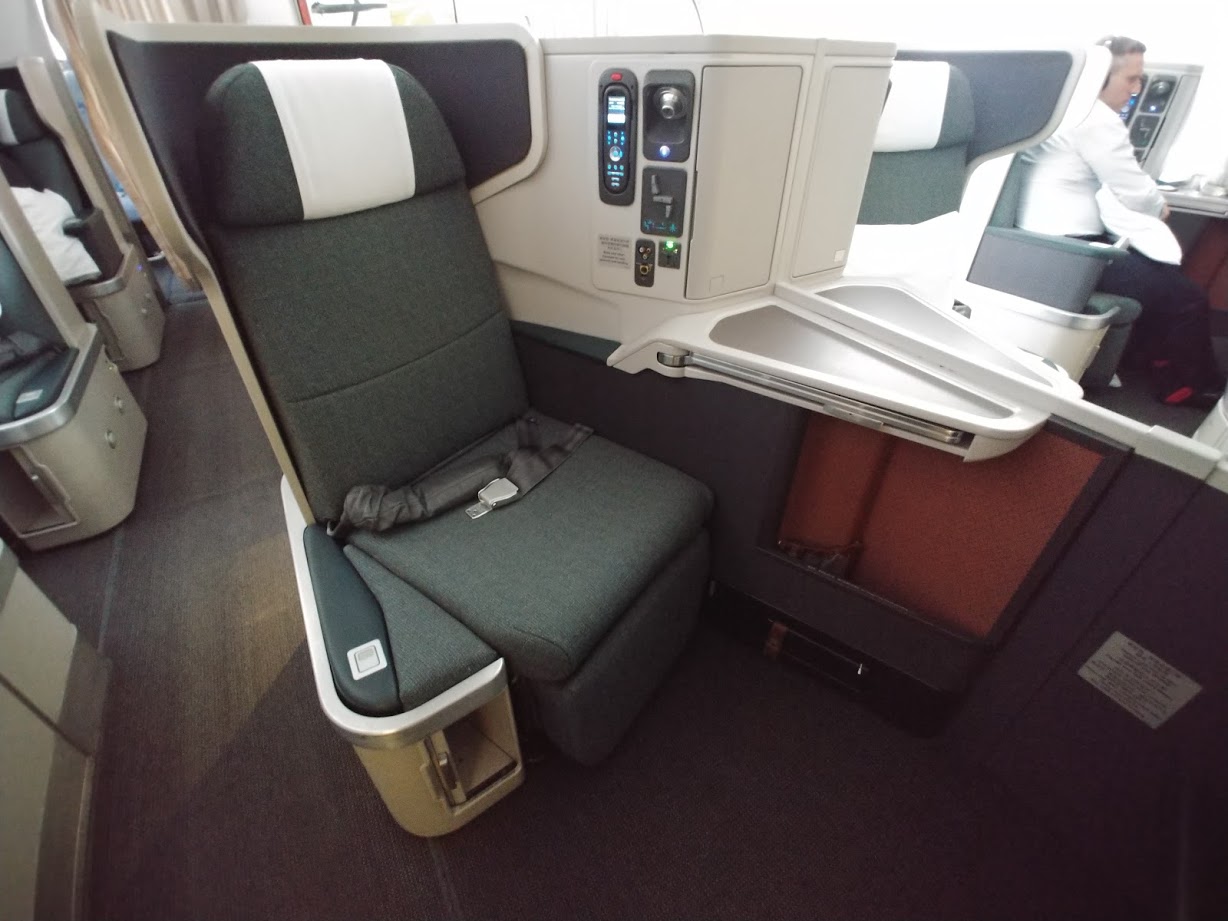NOTICE: This post references card features that have changed, expired, or are not currently available
Welcome to our Frequent Miler Week in Review Around the Web, where we recap some of the best stories this week from around the Internet. This week we look at a couple of sides of the loyalty coin.
Choice Hotels Is Adding An Elite Benefit That Hyatt Took Away

Read that title again :-). That is not a group of words I’d have ever expected to have strung together in that order. Choice continues to make a play for travel loyalty, and there are some strong values in the program. Just this past week, I was looking at a hotel for a last-minute trip my parents needed to make. A Clarion Hotel that fit their needs was $108+tax or 12,000 Choice points per night — a value of more than 1 cent per point after tax is calculated. And now Choice is upping the game with Elite recognition. Will Choice become my new go-to hotel program? Probably not. But with 8,000 points after 2 nights, great benefits at Nordic Choice hotels, and now this — I wouldn’t argue too hard against choosing Choice. It’s certainly worth a status match if you have some upcoming stays.
Free Breakfast – The Most Overrated Hotel Loyalty Benefit

Sriram at Travel Codex argues that hotel breakfast is the most overrated hotel loyalty benefit. I’m going to totally disagree with him. Can you get a cheap, more authentic breakfast elsewhere in the city you are visiting? Absolutely. But there is something really relaxing about easing my way into the day by strolling downstairs for breakfast and being able to come back up and sit in the room for a few minutes to digest. I enjoy not stressing about having to get together what I need for a day of sight-seeing before I’ve had my first cup of coffee and something warm in my stomach. Furthermore, I think I actually get up and out of the hotel earlier than I would if I were paying for breakfast — free breakfast forces me to wake up during breakfast hours and get a start to my day. Is it enough of a benefit for me to re-qualify for Hyatt Globalist? Absolutely not. Is it worth an annual fee? I’d say it certainly is if you spend $10K a year on the Citi Hilton Reserve (good for a free night and at least 30K Hilton points towards another on top of the automatic Gold status). Other cards perhaps provide less value — but I still don’t think free breakfast is overrated — do you?
Hotel cashback portal participation (it’s complicated)

The Free-quent Flyer has a great tip that I recently noticed but hadn’t yet researched. If you book your hotel stays through a cash back portal, you might be surprised to learn how little you qualify for based on your status with the chain. Did you know that being loyal to a chain means less cash back for you?
Travel Fail: Scheduling a Rental Car Pick Up for 1am

In a timely piece for me, Dakota – aka Majored in Miles at Travel Update — writes about an easy pitfall to encounter, and the fantastic customer service he received from another rental company thanks to his loyalty status (free, I assume, with his credit card). He also may have saved me an inconvenience with this post. Last night, I was flying to Colorado Springs but my connecting flight got cancelled. I rebooked to Denver and booked a one-way rental to get me to Colorado Springs (where I planned to pick up my original rental car). I wanted to stop for dinner on the way from Denver. It was late, and I probably wouldn’t have thought to call the rental counter in Colorado Springs to find out what time they close if not for this post. Luckily, I was able to squeeze in a quick stop at Waffle House on the way down — if I didn’t know I had to hurry, I might have missed the counter agent.
That’s it for this week around the web. Check back soon for this week’s last chance deals.



![A Marriott that’s an actual prison, United/Emirates partnering, a $900 credit card/bank bonus and more [Saturday Selection] a woman sitting on a beach with her hands out](https://frequentmiler.com/wp-content/uploads/2023/04/Untitled-design-2023-04-07T181036.038-218x150.jpg)

I wouldn’t do crazy mattress running or anything, but as a family with 3 teenage boys, we often seek out lower-level hotels that include free breakfast, and have gotten a ridiculous amount of value out of the free breakfast Hyatt Diamond status (from the match, not earned!) afforded us last year. To us, it is not overrated at all. I agree with Nick’s analysis that going down to grab food while everyone is getting ready is a great intangible benefit.
Can you go into more details about what you meant by “great benefits at Nordic Choice Hotels”? I have some travel in Norway I am planning in the future and if you any advice on that or could point me in the right direction I would greatly appreciate it! Thank you
From someone who often pays for three people to have breakfast at a resort hotel, this can be worth a lot. Often I’m not leaving the property for days by choice and the meals really add up. I’m not shifting any spending to requalify or staying at different hotels than I would, but have had the benefit through some status matches and it is nice.
Count me in total agreement with your take on the Hyatt free breakfast, which I will soon be losing when my Glob status comes to an end. Too hard to re-qualify (and I write this as someone who is dropping $3500 for hotels on current trip in cities without Hyatts). For weekend or vacation travel with spouse, a big breakfast in a good or even half-decent Hyatt starts the day off well and usually more-or-less holds us through dinner. So, no, I don’t see it as over-rated. Packaged with 4pm checkout, it has allowed us to have some amazingly luxuriant stays at places where we would otherwise always be running around on someone else’s schedule.
When I travel, it’s usually with my wife and two kids. My son is 14 and is at the stage that he eats more than my wife and I combined. A substantial free breakfast is more valuable than any other benefit a hotel could offer my family. I totally agree with you
Thanks for the link, even if you disagree with my premise 🙂 With all due respect, your counterargument essentially proves my point – the allure of free breakfast causes us to make poor economic decisions to obtain mid-tier status. In your example, not only are you paying the $75 annual fee, but you’re shifting $10,000 worth of spend to a points currency worth, at most, 0.4 cents/point when you could be earning a currency worth far more with category bonuses, etc., for the free breakfast (and the weekend night in your case). Plus, if you’re spending more to stay at a Hilton compared to a competitor to take advantage of the breakfast, what’s the additional incremental cost to account for? I’m just not convinced that the value proposition is as clear-cut as some make it out to be.
There is lots of stuff wrong with this analysis. First of all, I get 6X on my Hilton Surpass at grocery stores, which is where I get VGCs. So, that’s 2.4 cpp at your calculation (it’s not “at most” .4 cpp—that’s just bogus), which assumes an average redemption (I usually do better than that). So, I’m earning considerably better than I would with a 2% cashback card.
For a solo traveler spending a single night, free breakfast might not amount to much, because you might just get some food in an airport lounge. But this is a completely different equation for families traveling. For a family of four spending a week in a hotel on the beach, free breakfast is a monster benefit. That’s also when an upgraded room as a result of the status is going to make a big difference.
I’ll fight back :-). First, for the record, I respect your opinion and analysis. I can see and appreciate your math. But I disagree on two general grounds:
A) There is some intangible benefit of free hotel breakfast (starting my day in a more relaxing way, getting up and out of the hotel earlier — not that I couldn’t without free breakfast, I just know I wouldn’t). While my mom was a math major (hi, Mom!) and I can appreciate the accountant’s desire for quantitative analysis, I think the value of certain benefits like this can be clearly worth something even if it’s difficult to assign a mathematical value. I probably value this alone at more than $95 a year, but can understand if you don’t.
B) In the specific case of Hilton, I think it’s worth paying the fee for the Citi Hilton Reserve card. And I say this as a Surpass holder currently as well — which can be worth the fee depending on your grocery/restaurant expenditures.
Argument A is hard to quantify and obviously very subjective. I probably can’t convince you that argument A is “worth” the annual fee. I’ll admit that it’s at least mostly psychological, but I value my sanity/relaxation, especially on a tourism-focused trip. I wholly understand that this value may be disproportionately higher for some than others. So let’s ignore this one for a moment.
Argument B: You’re right that Hilton points are *generally* worth around .4 cents each. But I’m not going to redeem them for the Hampton Inn in Elkhart, Indiana on a Tuesday night (shout out to the Hampton Inn there — stayed several times and you guys are great, you’re just not getting my points). I’ll pay cash on a stay like that. I’ll save my points for New Year’s Eve or Fourth of July or the Olympic Swim Trials or a concert/sporting event/etc where room rates are higher than I’m comfortable paying — and the value of the points often eclipses .4 cents each. Not everyone will hoard points waiting for those opportunities, but I will. For me, it’s not worth using points for a stay that’s in my comfort-zone price-wise unless the value per point is stronger than average (or I’m flush with way more points than I’ll ever need). I generally save my points for situations in which I’m not comfortable paying the cash price (or where the value of the points starts to creep towards 1 cent each). That usually means vacation and a property that is nicer/better located than what I’d be willing to pay for. Admittedly, there’s some funny math involved there — valuing the points versus the room rate (rather than the cheapest available room at a hotel I’d consider) might not be totally accurate. Regardless, it’s definitely not impossible to do better than half a cent per point — in which case, the category bonuses on the Hilton cards become decent if not industry-leading. But even if we take base earning on the Hilton Reserve card at 3 points per dollar — your $10,000 in spend and the annual fee gets you a free weekend night, 30K points, and Gold status (breakfast). Is that not worth paying the AF? Let’s compare against a 2.5% card — $10K would get you $250 back. The weekend night alone is worth that much (and potentially quite a bit more depending on where you use it). I always assume that as a base line, I’ll use that weekend night in Manhattan where room rates often eclipse $250. If you can use it at a place like the Conrad Tokyo or a weekend night in San Francisco or some other city where room rates can be double that rate or more, you’ve gotten a very strong value out of the $10K in spend. Then you’ll additionally have 30,000 points — even based on a .4 cent per point valuation that’s another $120 — though it’s not impossible to get $150 or more out of those. And you’ve got free breakfast for the year. Maybe you’ll even get a room upgrade. I think that’s a good enough value to justify the annual fee.
If you aren’t going to put $10K spend on it per year, maybe the value proposition isn’t as strong — though if you value breakfast at $10 per person x 2 = $20. That means it’s a wash if you stay at least 5 nights a year. While the terms & conditions technically limit this benefit to 2 adults, as you can see in the comments here it is not uncommon for properties to allow your children to eat for free also (though definitely not guaranteed and not always true). If you’re traveling with kids, the strength of argument A (the comfort/relaxation/sanity argument) also increases. And isn’t that what vacation is all about – a chance to relax?
If your question is whether or not it’s worth mattress running for status to get free breakfast, the answer would clearly be “no” to me. But if you’re talking about getting it from a credit card, I think it can be well worth the fee for most people who travel enough to consider a hotel credit card. If you also get category bonuses — and/or a signup bonus — those cards become potentially all the more worthwhile – and certainly not overrated in my opinion. If you travel to places where the breakfast spread is particularly special, that’s just icing on the cake.
And to add just a bit to the value proposition, let’s remember that the benefit in the case of Hilton is not just free breakfast but Gold status. In addition to the other things mentioned, you’re getting a couple of bottles of water per stay (not amazing, but worth a couple of bucks to me as we always end up buying at least a bottle or two), more points on your paid stays, better chance at an upgrade/late checkout, 2nd guest stays free (can save you $ in Europe), and 5th night free on an award stay (also for Silver members, but not base members).
To translate some of that into math, you get 2.5 extra points per dollar on your paid stays as a Gold member (on top of 10x base and bonus points by paying with your Hilton card). Let’s say you average 5 paid nights a year at $150 a night. That’s 1,875 extra points per year thanks to Gold status. At the .4 cents per point valuation, that’s worth about $7.50. That number continues to climb with more paid nights. Two free bottles of water ($2 value) x 5 stays = $10. Let’s say you only get $10 a year on average in value out of late checkout, 2nd guest free, 5th night free on an award (probably worth a lot more than $10 per year on average even if you only use it once every 5 or 6 years), etc — we’re at about $27.50 per year on average in value before considering breakfast. And I think that’s pretty conservative — one decent 5th night free redemption could easily be worth the annual fee by itself. I think for a couple it’s well worth $95 for Gold status and if you have kids and they eat for free even occasionally, it’s a decent win.
So, if your question is whether the cards are overrated, I don’t think so.
But I enjoyed reading your thoughtful analysis and thought it something worth more readers considering (hence the inclusion here — it wasn’t just to disagree with you 🙂 — because just as I think it’s highly possible to get well beyond the AF in value out of the Hilton cards, it is also clearly possible not to do so if you don’t stay / use the benefits or if you go out of your way to pay more for a Hilton, etc. I like the thoughtful analysis of the benefits and can’t disagree that the cards aren’t a right fit for you — but I think they’re a good fit and value for a great many people.
Nick – Interesting and helpful logic behind the analysis. A couple of questions/comments, as I often find myself going back and forth on this exact issue (believe these relate to the funny math mention of your post):
1. How do you account for any additional out of pocket expenses tied to selecting the preferred hotel chain over the potential alternatives? Using Elkhart as an example, I pulled a handful of random dates and the Hampton Inn base rate was consistently $20 to $50 more than comparable competition (in terms of guest ratings and amenities – Comfort Suites and even Microtel receive comparable reviews, though the latter does not have a pool).
2. Taking it a step further, Daily Getaways sells Choice Privileges points for between .4 and .45 cents each (though they sell quickly). Back to Elkhart as an example, a lot of the dates had the hotel rooms available for 8K per night. This equates to roughly $35 per night, which is closer to $100 less than the Hampton. How do you value this cost difference versus brand loyalty?
3. You mentioned using the free night in expensive cities to obtain the most amount of value. Admittedly, I often find myself wanting to do just that. However, what is often overlooked is the additional costs associated with that more expensive location. If I already had a trip planned for San Francisco that is one thing, but my guess is that it is somewhat common for those in this hobby to select destinations based on maximizing value. What is then missed is the fact that expensive cities are much more costly in other areas (lunch/dinner/transportation). Beyond that, you have a certificate for one free night. Assuming this is used for a vacation of at least a few days, you are either using a ton of points for the following night(s) or changing hotels during the trip. If the latter is selected, this then has a time component and disrupts the vacation aspect.
4. The number of points required to redeem (or cost for a paid stay) at a Hilton with free breakfast is often lower for their brands that offer complimentary breakfast (typically more basic) versus those in which the Gold status comes into play. Unless you are using the free night (and only staying one night), there is a cost for the rest of the vacation in terms of higher daily rates or more points.
If I am paying cash for a hotel room, my focus is primarily on the following (not necessarily in order):
1. Ratings/reviews
2. Cost versus competition
3. Current hotel chain promotions – IHG recently had an offer to earn a $100 Mastercard in just a couple of stays, on top of a bunch of bonus points. With Hyatt and IHG, their promotions are typically geared towards number of stays while Hilton is based on cost. Instead of feeling obligated to stay at one particular chain, I can now accumulate the most value while also accounting for the other factors listed previously.
This hobby makes it easy to justify spending additional money for credit cards, because it is so simple to look at maximizing redemptions. However, in doing so, we often overlook additional expenses and/or opportunity costs associated with the process. With all that said, my family travels about 3-4 times per year for vacation, and we try to use points whenever possible to save on both the base rate as well as the taxes and potential resort fees. In addition, we target hotels that offer free breakfast. I find it challenging to cover a stay of 5-6 days through the Hilton program, even with a free night certificate and 5th night free benefit. Instead, Hyatt (free night at category 1-4 plus ability to earn at a rate up to 5X by transferring from Chase) and IHG (free night without any spend requirement plus ongoing promotions) make it much more feasible. I really enjoy the Hilton brand, but have to admit that they are often more expensive than the competition.
As with most things, it all boils down to personal preference.